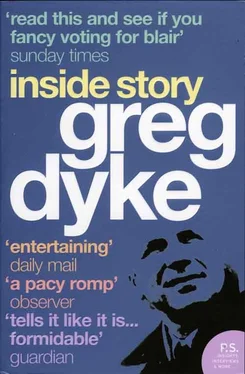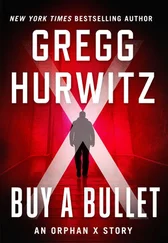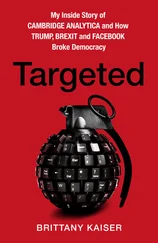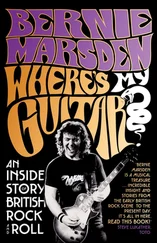
To Sue
And to Matthew, Christine, Alice, and Joe
Cover Page
Title Page Greg Dyke: Inside Story
Dedication To Sue And to Matthew, Christine, Alice, and Joe
CHAPTER ONE Three Days in January
CHAPTER TWO The First Thirty Years
CHAPTER THREE Into Television
CHAPTER FOUR A Year at TV-am
CHAPTER FIVE TVS and Back to LWT
CHAPTER SIX Running and Losing LWT
CHAPTER SEVEN Joining the BBC
CHAPTER EIGHT The BBC Years (1)
CHAPTER NINE The BBC Years (2)
CHAPTER TEN Why Did They Cry? (Culture Change at the BBC)
CHAPTER ELEVEN Television and Sport
CHAPTER TWELVE Gilligan, Kelly, and Hutton
CHAPTER THIRTEEN Why Hutton Was Wrong
CHAPTER FOURTEEN Some Final Thoughts
Index
P.S.
About the author
Leading by Example
LIFE at a Glance
Top Ten Favourite Films
Top Ten Favourite Tracks
About the book
A Collective Failure? by Greg Dyke
A Day in the Life of Greg Dyke
Read on
If you loved this, you’ll like…
Find Out More
Acknowledgements
About the Author
From the reviews of Inside Story:
Copyright
About the Publisher
CHAPTER ONE Three Days in January
As I left home on the morning of Tuesday 27 January 2004, I had no idea that within thirty-six hours my career as Director-General of the BBC would be over. I didn’t even see it as a remote possibility that I would be fired by a board of BBC Governors behaving like frightened rabbits caught in the headlights – a board unnerved by a combination of the resignation of their Chairman, Lord Hutton’s infamous report, and the prospect of the revenge the Government might seek to take against the BBC.
Of course very few people knew then that Lord Hutton’s report, due to be published the following day, would so damn the BBC and would so totally exonerate the Government of any mistakes or wrongdoing. It was our view that the BBC had made some mistakes and was likely to be criticized but that the Government would deservedly suffer at least as much. Nor could anyone have known that within forty-eight hours the acting Chairman of the BBC would do lasting damage to the BBC’s reputation at home and abroad by issuing the most grovelling of apologies to a vitriolic Government.
And who could possibly have foreseen that thousands of BBC employees, in all parts of the United Kingdom, would have taken to the streets to support me, or that they would have clubbed together to pay for a full-page advertisement in the Daily Telegraph backing me and challenging the Governors to defend the independence of the BBC? And how could anyone have known on that Tuesday morning that by the end of the week Lord Hutton’s report would have been so comprehensively ridiculed by media and public alike, its findings dismissed as a crude whitewash of the Government and yet another example of Number Ten spin?
Nevertheless, as I left home that morning I certainly knew that it was going to be a lively week.
With the publication of the Hutton Report imminent, the photographers and reporters were already camped outside my house in Twickenham, so even the most innocent of passers-by would have known that something was up. My partner Sue was away in Suffolk for the week, real evidence that we didn’t expect a major crisis: if we had, then there was no way she would have gone. Only Joe and I were there that morning. Joe was sixteen at the time, the youngest of our four children and the only one at home. He was used to journalists and camera crews turning up outside our house and we both smiled when we saw them there that morning.
Our house backs onto nine acres of parkland that we share with forty or so other houses. This gives us numerous choices for getting in and out, making it virtually impossible for any reporter, photographer, or camera crew to catch me. We saw avoiding them as a game that we had been playing, on and off, for the four years I’d been Director-General. On some occasions Joe or my daughter Alice, who in January was away building a school in Africa, used to take pity on them and would tell them that I’d already left, but the journalists never believed them. Joe, Alice, and I quite enjoyed the game. Sue, on the other hand, hated these people intruding into our privacy in this way.
Because I had expected the press to arrive, I had already arranged for Joe to spend the next couple of days at a friend’s house, so on that Tuesday morning we left together through the back door, with Joe pushing his bike and carrying a bagful of clothes. We got onto the road through the garden of Number 10a and when we got there I rang Bill, my driver, and he drove around the corner and picked me up. Meanwhile, Joe cycled off to college. An easy win that morning. The next time Joe and I were to meet was on Thursday evening, when I was no longer the Director-General and he had already started making jokes about leaving home if I was going to be there full time.
That Tuesday was Hutton publication day minus one, the day when all of those involved in the inquiry were to get an advanced copy of the report. We were to receive it exactly twenty-four hours before Hutton pronounced, which meant we would get it around lunchtime. A total of twenty-two of us at the BBC had signed confidentiality agreements and we had agreed a timetable for the day. I was going to read the report alone in my office. Richard Sambrook, the Director of BBC News, and his deputy Mark Damazer would read it in the meeting room next door, along with Magnus Brooke, my acting business manager. Magnus was a lawyer whom I had picked from relative obscurity within the BBC for this job, and he was brilliant. During the summer he had gone back to the legal division for a period to help out on Hutton. The rest of the people entitled to read the report that day would be in rooms nearby. Andrew Gilligan, the journalist at the centre of the row, and his legal team also had a room allocated in the building.
We had all set aside four hours to read the report knowing that it was likely to be nearly 700 pages long; but as it turned out, we didn’t need anything like as long as that. Halfway down page three I knew we were in trouble. It was on that page that Lord Hutton explained that he had decided to limit the scope of his inquiry and completely ignore the crucial question of what sort of weapons of mass destruction the Government was warning us about in the dossier they had published in September 2002. With this one inexplicable decision Lord Hutton had wiped out key parts of the BBC’s evidence and a critical foundation of our case. The following week we were to discover perhaps the most damning fact of all: that the Prime Minister himself had no idea what sort of weapons of mass destruction he had referred to, even though he’d used the so-called evidence of their existence as the central theme of his own introduction to the dossier and a reason for going to war.
There was a crumb of comfort for everyone at the BBC at the bottom of page three when Hutton said he was satisfied that no one involved in the row, including the BBC, could possibly have realized that Dr David Kelly, the Government expert on weapons of mass destruction who had been the BBC’s source for its original story, might take his own life. But these were virtually the only kind words about the BBC in the whole report, and even that reference was far kinder to those in 10 Downing Street and the Ministry of Defence than it was to the BBC. It was Number Ten and the MOD who had hounded Dr Kelly, not the BBC: we had gone to great lengths to keep his identity secret.
Читать дальше













